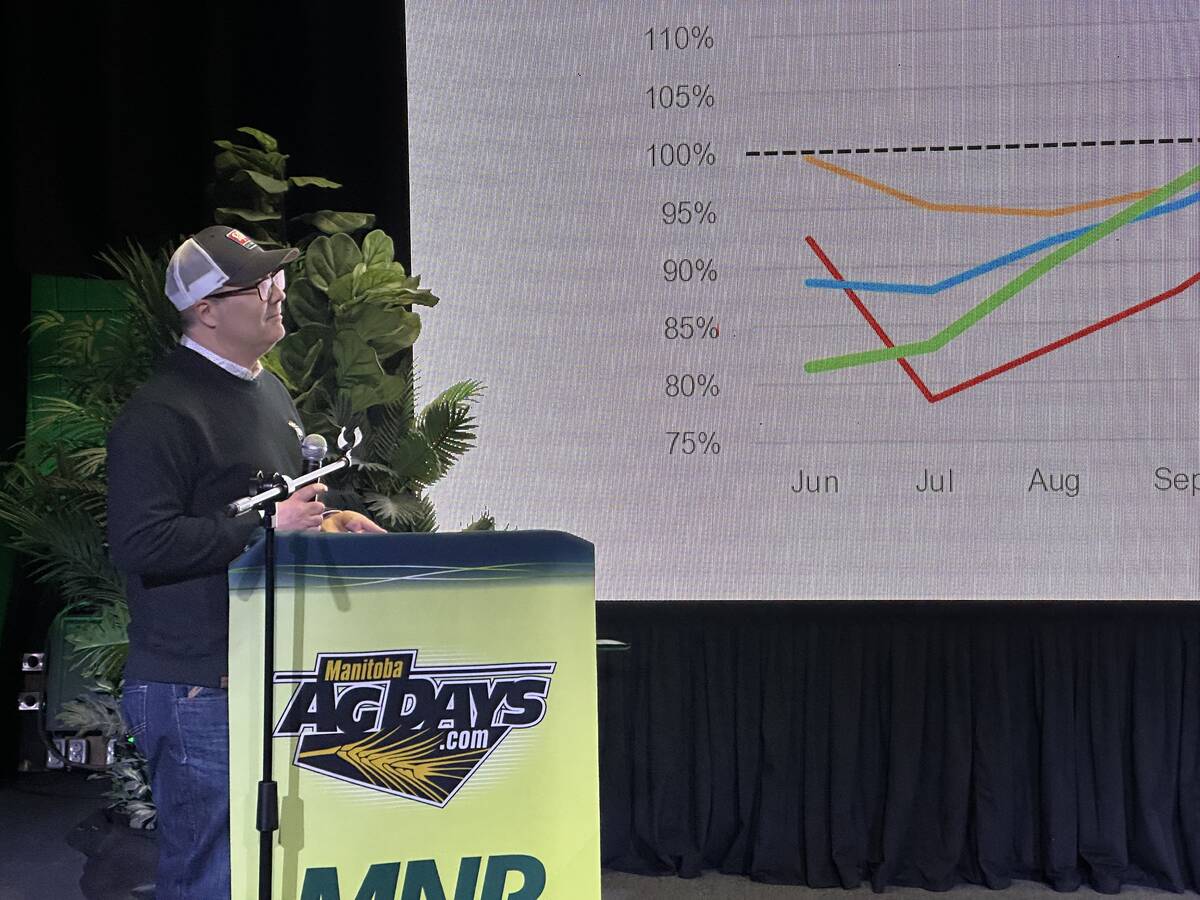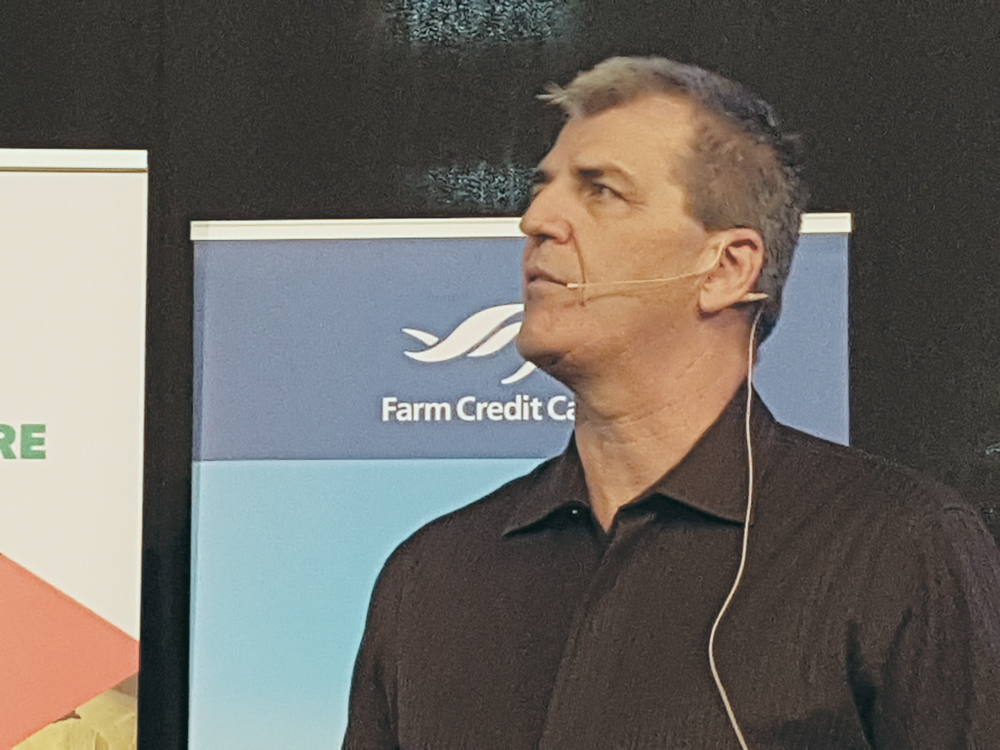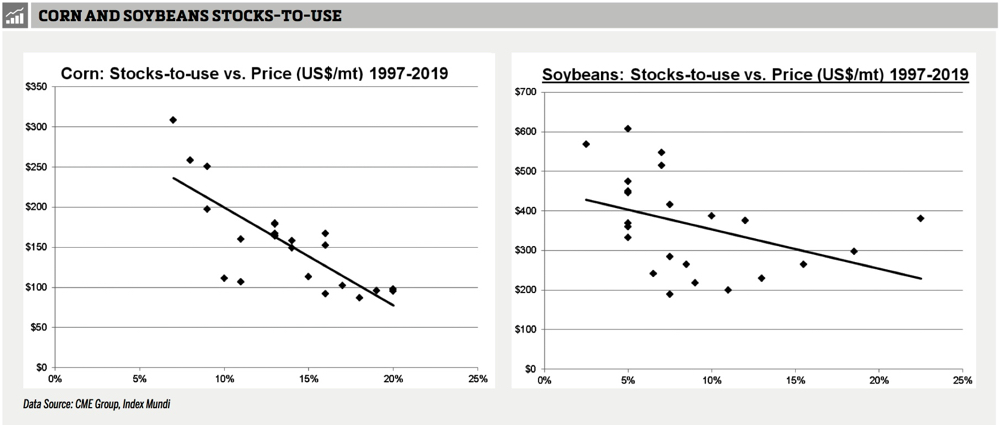Commodity analyst Larry Weber says he’s changed his morning routine recently.
In the years he’s been in the business of analyzing grain markets, the first thing he always checked every morning was the news wires, looking for world events that could make a difference in markets.
“Now I’m checking Twitter to see what Donald Trump might have tweeted last night,” Weber told farmers at Ag Days during his semi-annual market outlook presentation at the event.
“I check it because that’s what’s moving markets. Canola is up $4 today because of what he said last night. Friday (Jan. 20, Inauguration Day) the world is going to change, and I’m scared,” Weber said. “In all my time, I have never been so fearful of an incoming president.”
Read Also

MANITOBA AG DAYS: Don’t wait to buy fertilizer, farmers warned
Higher fertilizer prices likely ahead, says Ag Days speaker. Farmers waiting until spring to buy fertilizer might end up eating the cost.
Chaos-in-chief
Weber said he’s most concerned about what appears to be Trump’s chaotic approach to governance and the presidency. While shooting from the hip might be fine for most, the role of the U.S. president is frequently to be above the fray, the calm voice of reason, and the one keeping diplomatic channels open.
“It’s not really what he might do that concerns me, so much as the conventions that he won’t follow,” Weber told the crowd. “He’s like a 13-year-old in the schoolyard.”
For financial and commodity markets, that’s likely to mean politically related volatility, and a lot of it, as Trump bullies and blusters, Weber said.
Much of that volatility is going to be related to currency fluctuation, Weber said, which then spills out into prices on markets throughout the world. Unlike other situations where chaos can produce opportunity, in this case finding those chances might be a bit harder, since Trump doesn’t appear to like sticking to script or being consistent.
Bean bonanza
Turning to grain markets proper, Weber said he expects to see soybeans acreage continue to grow as the crop continues to burst out of the Red River Valley and westward on the Prairies.
“We’re even seeing it in Saskatchewan now, especially south of the No. 1 highway, where it’s showing up in rotations,” Weber said.
Weber said it’s likely the Prairies will see another big bump in soybean production as growers become more comfortable with the crop, but added that any sense the acreage was coming straight off the top of canola isn’t supported by the numbers.
“Canola has actually been quite stable, and so has wheat,” Weber said. “It’s also not coming from summerfallow, so the question is, ‘where is it coming from?’ and the answer seems to be that it’s coming a little bit from a lot of places.”
For example, Weber said oat production in Manitoba likely contributed about 100,000 acres or so to bean production, and that was the biggest effect he could see in his analysis.
Canola too
Weber also said he’s looking for big canola acres this spring, with farmers pencilling out their budgets for the spring now. In fact he’s expecting to see the return of tight canola rotations, with economics beating out agronomics yet again.
“Farmers are telling me, ‘I’m going to grow it because it’s the only thing I’m going to make money at,’” Weber said.
In fact, Weber said this trend has caused him to rethink his long-held view that the crop would always have a hard acreage ceiling because of agronomic limitations, preventing it from reaching the most optimistic future estimates of 22 million or 23 million acres in Western Canada.
“I’ve thrown that out the window,” Weber said. “There was a huge shift to canola when I did my annual 100-farmer survey.”


















